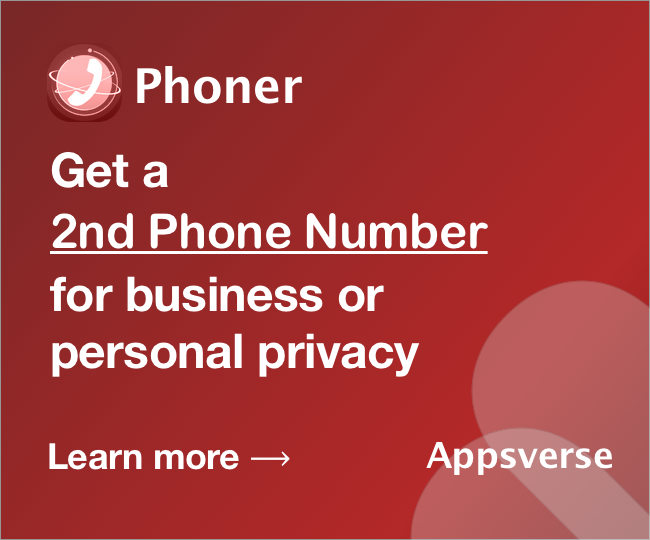Almost anyone with a mobile number today is no stranger to the impressive persistence of spam callers and telemarketers. They invade your privacy and peace, and in worst case scenarios, have you falling for scams that can have you losing as much as your life savings. Here’s how they have been acquiring your contact information, and the best ways to stop telemarketers from calling your cell phone.
So, how is your phone number ending up in the hands of these telemarketers?
1. Accepting the Terms and Conditions without reading them
Many apps, even seemingly innocent ones like your gaming apps, have been built mainly to acquire and sell their downloaders information. When setting up these apps, you might already be familiar with the usual call to actions that ask of you to agree to “Terms and Conditions”. Like everyone else, you might tend to click “Agree”without actually reading them. These apps also usually seek access to your location and your contacts under their “Terms and Conditions”. The owners of the apps can therefore easily unlock a trove of data found in everyone’s and anyone’s smartphones.
Be careful when you install any new apps on your device and always read the terms and conditions before you unknowingly agree to sell off your personal information. Question the actions the apps prompt you to do, like for example, allowing access to your contacts for a utilities or gaming app.
2. Signups, Sweepstakes and Social Media
Usually, anytime you provide your personal information to participate in contests, warranty registrations, or even in online services, that information can be in the hands of almost anyone who’s willing to pay for it. The problem with ‘big data’ is that there are dedicated companies out there now who build technologies to scour the web and collect large amounts of information to sell them for a profit.
Be wary when you sign up for anything online, and be sure to read the fine print. Opt out of allowing the information to be accessed/shared if such an option exists.
3. Third Party applications or Data Aggregation Platforms
You’re sure to be familiar with such apps on your social media, popularly disguising themselves as personality quizzes, multi-player games or even productivity extensions.These apps are sometimes solely built for the purpose of extracting data of people, and now with social media, this process has only gotten so much easier. That personality quiz? You most likely just enabled the app to pull the contacts of your friends and now, you are one of the many who need to stop getting soliciting phone calls.
Many social media services provide the means to opt out and prevent your information from being shared with third parties. This could however, be time-consuming to do.
4. Credit companies
Probably the one institution who knows you best (after the government) and have strategically used it to their advantage are credit companies. These companies store lots of their clients’ data, detailing useful information like consumers’ financial habits, for example. These companies can sell this information to other businesses for a hefty profit.
What are the practical steps to stop telemarketers from calling your cell phone?
Here’s the baseline—it seems that almost anyone who has a mobile number has their information in the hands of telemarketers. Though they may merely be a nuisance now, unwanted calls could escalate to have even more telemarketers bothering you all day, or worse, have you falling for scams that could have you paying a major price.
1. Register your number to a National Do Not Call service
Those who do not wish to receive telemarketing messages via phone calls or texts can apply to their national Do Not Call registry. It is usually a simple online process that can stop telemarketers from calling home or your business. Most telemarketers heed to these national regulations and that should reduce the proportion of the calls you’ve been receiving.
National Do Not Call registries, however, only protect you from registered businesses and their sales calls. They cannot protect you from unregistered or illegal services’ calls or telephone survey calls, for example.
Furthermore, should you have given a business written agreement to be in contact with them (which you might have inadvertently done for their attractive discounts and membership cards), they will still be able to contact you. You need to directly correspond with these companies to unsubscribe from their marketing calls.
2. Download Call Blockers
There are many apps available today to help block those unwanted calls from spammers and telemarketers. Apps like Nomorobo can identify and answer spam callers and robocalls so that they don’t get through. It can even help blacklist these robocallers for everyone once picked up by your cell, reducing the likelihood of bots all around.
However, with easy access to improving technology, these spam calls just get cleverer with time. Scammers are now using spoofing as a technique to fake numbers with the same area code to appear more legitimate. This could mean that these blocking apps may no longer be able to protect your privacy sufficiently.
3. Download a “Second Phone Number” app
Phoner 2nd Phone Number for Me (click here to get it on Google Play) is one of the best fuss-free solutions out there. You can consolidate all non-private relations with the Premium phone numbers provided through the app. With the option to have multiple phone numbers, you can stop telemarketers from calling your business or private lines.
Nip the problem in the bud by using an alternate mobile number for interactions via social media platforms, online transactions, or even for those one-time verification code texts. You can then almost always be assured that you will stop getting phone calls from telemarketers to your private number!
The best part about this app? Not even Appsverse, the developers of the app, has access to your personal information from your carrier-registered number. This way, this alternate number has no chance of getting in the hands of those data-hungry companies.
A perfect solution; what’s more, through such an intuitive and simple process!
You vs Big Data
With an understanding of the business practices in the ‘big data’ world we live in today, you can better equip yourself against having your personal information being traded so easily. The more you keep abreast on developments in data trading and internet security, the better and faster you’d be able to stop telemarketers from calling your cell phone!
Want first-hand insider developments in Internet privacy and security? Check out our blog here.

 4.5/5 on App Store
4.5/5 on App Store





